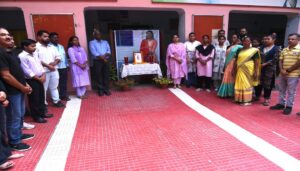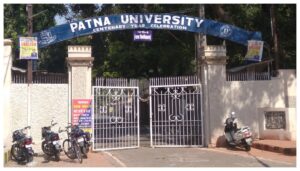CUSB’s Prof. Anil Kumar Singh Jha Develops Courses on Sociology of Sanitation for Swayam Prabha DTH Channel

GAYA – Prof. Anil Kumar Singh Jha, from the Department of Sociological Studies at the Central University of South Bihar (CUSB), has created ten (10) courses on the Sociology of Sanitation for the Swayam Prabha DTH Channel.
According to CUSB Public Relations Officer (PRO) Md. Mudassir Alam, the course recordings were conducted at the Media Technology Centre Studios at the Indian Institute of Technology (IIT), Kanpur.
Swayam Prabha is a cluster of DTH channels dedicated to broadcasting quality educational programs 24/7, seven days a week. It is part of NPTEL (National Programme on Technology Enhanced Learning), a collaborative initiative of IITs and IISc, funded by the Ministry of Education (MoE) Government of India.
Prof. Jha, shedding light on the Sociology of Sanitation course, highlighted the intricate connections between sanitation and sociology. He argued that the improvement of sanitary conditions in India is influenced not just by resources but also by the beliefs, practices, and customs related to health and the environment. The course delves into topics such as the historical background of sanitation, its relationship with caste, gender, and the environment, the national and international sanitation scenario, various government schemes and policies, and the role of Sulabh International in the sanitation field.
Prof. Jha emphasized the course’s relevance for students, research scholars, faculty members, NGO workers, and anyone interested in deciphering the magnitude and importance of sanitation. Prof. Jha had previously developed ten courses on the Sociology of Sanitation, with their telecast scheduled for January 2024. As an expert in Sociology of Sanitation, Prof. Jha is currently engaged in a research project on sanitation, funded by the Government of India.
Vice-Chancellor Prof. Kameshwar Nath Singh congratulated Prof. Jha, acknowledging the course’s relevance and the urgent need for such initiatives to create awareness in society and induce a change in individual behavioral patterns.







